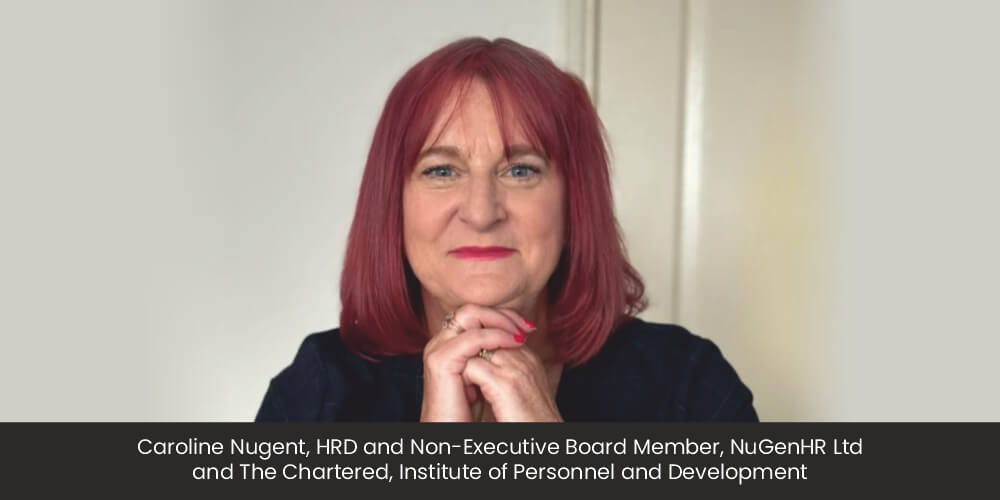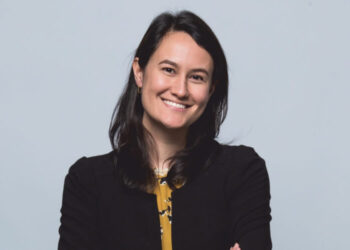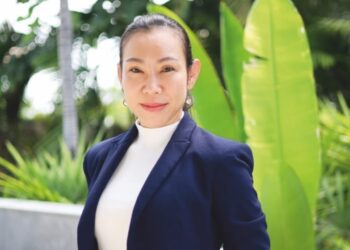Caroline Nugent, a distinguished senior executive in human resources, is the driving force behind Nu-GenHR Ltd., an independent venture focused on HR and organizational development (OD). With extensive experience, she offers interim and consulting services encompassing transformation, executive resourcing, HR reviews, coaching, investigations, and mediation. Her expertise spans over 30 years and four years as a non-executive director and trustee of the CIPD (Chartered Institute of Personnel and Development).
A Fellow of the CIPD for more than 18 years, Caroline is a past President of the PPMA (Public Services People Managers’ Association), an esteemed body serving professionals in public services. Her qualifications encompass HRM, executive coaching, leadership mentoring, psychometrics, and workplace and employment mediation.
Her career trajectory includes pivotal roles such as Executive at the Financial Ombudsman Service, the world’s largest ombudsman service, and Director at oneSource, a vital support entity for 8,000 employees. Last year, Caroline took a sabbatical, fortifying her energy reserves and exemplifying her commitment to holistic well-being.
Below are highlights of the interview:
Tell us about The Chartered Institute of Personnel and Development and its mission.
The CIPD champions better work and working lives. It wants to see good work within inclusive and responsible businesses, making economies and societies stronger. HR is at the heart of business decision-making and has been at the sharp end of meeting the expectations of a workforce that has clearly changed. The CIPD provides its 160,000 worldwide members support and challenge on the complex issues of inclusion and sustainability, policy and practice on everything from wellbeing, to reward and flexible working, and carries out research to bring more evidence into practice.
How did you initially get involved in the industry, and what motivated you to pursue a career in this field?
Seeing someone start a career and coaching them to become a HRD or a CEO gives me great pleasure. I believe in personal development and that continual learning is critical. Too often, you will hear people say that something that worked in business twenty years ago is still best practice! I listen to people on the front lines of a business, as they will tell you what needs to change. Culture change isn’t easy or quick, but it’s worth pursuing.
Good HR people understand the organisation but also who works within it and the impact managers can have day-to-day. We’ve all heard the saying, “You leave a manager, not an organisation/job” and it is so true. You can get the same piece of work done, but it’s how it is achieved that impacts the long-term sustainability of an organisation or team. People are prepared to roll up their sleeves when it’s needed, but they also expect something in return. That’s why I decided to start my own business. I want to have the opportunity to delve into workplaces and offer challenge and support with no judgement.
How do you foster a culture of innovation and adaptability within your organization, considering the rapidly changing landscape of the business industry?
More and more, data and evidence-based decisions have come to the top of the HR toolkit of skills. You must use data to inform your decisions. A great example of this is inclusion and diversity. Until you delve into the data, you can’t resolve an issue. Do you know where your talent is dropping off through different stages of recruitment, performance management, or promotion? Do you know if intersectionality is playing a big part? Only when you know the issue can you start to provide solutions. There isn’t always a singular answer in the majority of issues brought to senior people in HR. You need to question to get to the real issue.
What steps do you take to attract and retain top talent in the industry, and how do you encourage professional growth and development within your organization?
The CIPD profession map highlights the skills, knowledge, and expertise required perfectly and highlights expectations for different levels so you can see how you need to develop. As a membership body, it’s vital that we understand for all industries what a good HR professional looks like.
In the past, I’ve used psychological profiling to see which person is the best in ‘x’ role over and above their peers and why. This helps to understand what you really need to look for both in resourcing and training to get the ‘fit’ and to reduce attrition.
The money for training can be limited, but this leds to fantastic joint training programmes that have been award-winning. Leading apprenticeships and graduate programmes is something I’ve always championed, and learning on the job is probably still the best way to develop your talent.
How do you address the increasing importance of digitalization and technology in the sector, and how does it influence the company’s operations and customer experience?
Generative AI is about people and skills, not just technology, and we’re only just seeing what can potentially happen in the future. Digitalisation is critical. e.g., being able to have the assurance that someone is a CIPD member will be easier with the improvements in technology.
We do really have to consider the ethical impacts of AI, and it is now that all companies need to bring in AI policies. We need to move quickly to understand the opportunities this can bring. For example, drafting policies may have taken many hours previously, but there are also potential negative impacts we need to consider. Employees must realise the risks attached to entering data, for example into ChatGPT but if this isn’t spelt out then whose fault is it when things go wrong?
As Non-Executive Board Member of the company, what is your overall vision for the company’s future and how do you plan to achieve it?
The Trustees are responsible for setting the CIPD broad strategic framework, providing insight and advice on priorities, and providing assurance on progress in delivering the strategy. We approve the overall budget and major capital projects and oversee the management of affairs, including ensuring that the CIPD fulfils its charitable objects and purposes.
In 2022, the Board agreed to set up a Trust to grow its social impact, extend its charitable work, and continue to build diversity within our profession. I was keen to be the board sponsor for such an important piece of work. One of the key focuses is on helping those with criminal convictions or refugees gain meaningful work. Ultimately, it’s there to tackle barriers to work and create inclusive workplaces by connecting individuals and organisations to the expertise they could not otherwise access.
We’ve gone live with a new website for members and with work on the infrastructure continuing, it will ensure we are offering members the best experience.
With regard to Nu-GenHR the vision for my company is to offer expertise from someone who has worked in the field for many years.
What advice would you give to aspiring leaders or individuals looking to join the industry?
Why wouldn’t you want to be in HR? Having a role where you actually make a difference in people’s working lives is so rewarding. As the CIPD says, our role is ‘Championing better work and working lives’.
Do things outside of your comfort zone, and don’t say no to a stretching piece of work unless you know it’s outside of your capability (if it is outside of your capacity, negotiate to move something so it’s not). And if it is outside of your capability now, learn it! Self-awareness is key. You need to know yourself, your areas of strength, and your areas of weakness; we all have them. And in those areas where you are weaker, you can develop. Finally, confidentiality goes without saying. No one wants to have their confidential issues discussed or shared, so this is core for anyone in HR, from the most junior to the most senior role.
Qualifications and core leadership requirements you learn in HR are so transferable into any role. Once you know how to manage people properly, you can move into any area; no one is successful without the team being successful!
My whole life has been about listening to others and challenging their thoughts to get the best results possible for a company. HR has to be the voice of both employees and stakeholders/customers as well as looking after the company and we sometimes have to give the hard or honest messages. If HR aren’t prepared to do this then we see some of the ethical decision-making issues which have arisen. Long term sustainability of an organisation is so important.





